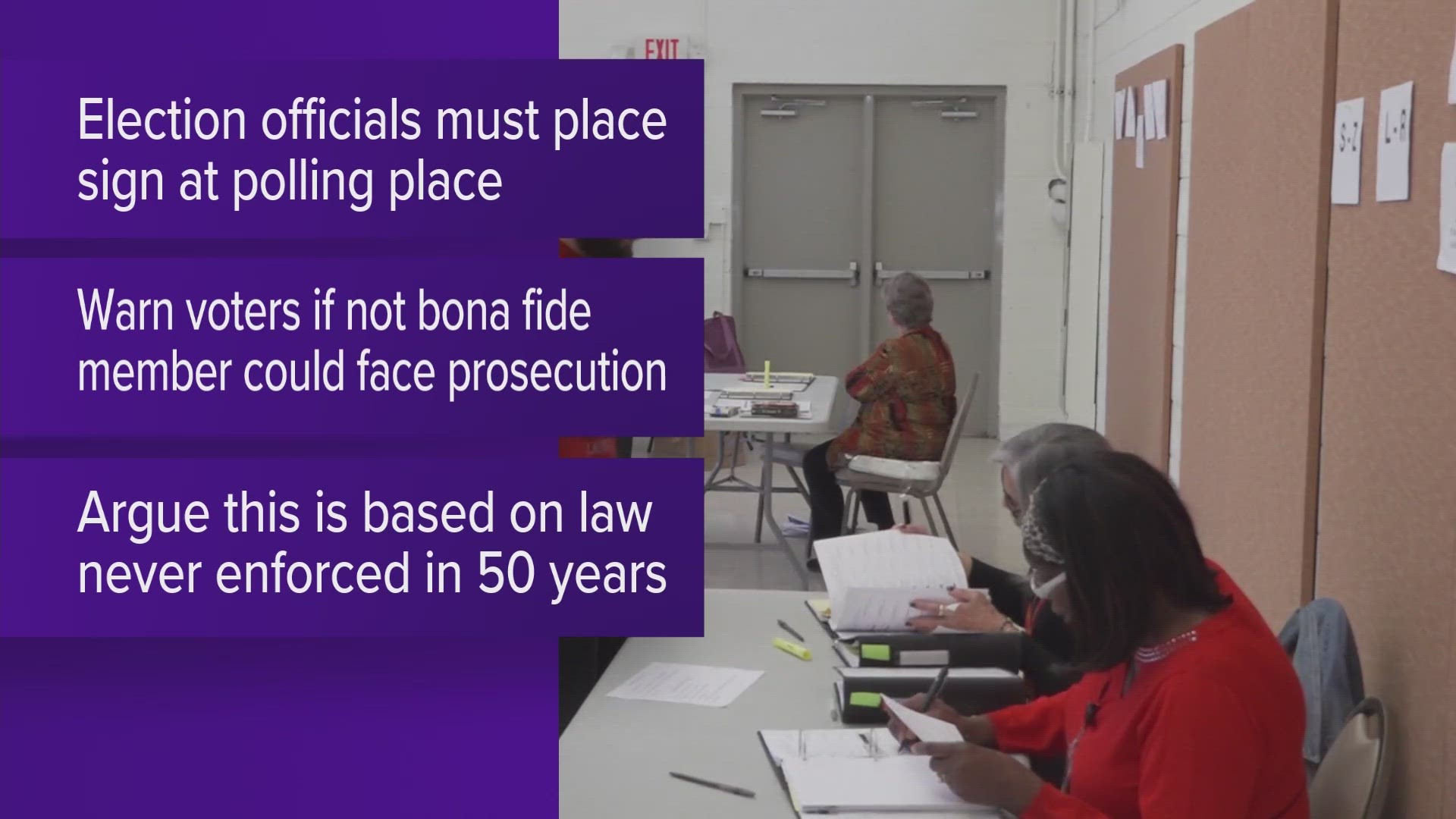Two prominent Knoxvillians and the League of Women Voters of Tennessee are challenging state laws they describe as vague and bullying for voters trying to take part in primaries.
One law in effect for decades asserts -- without being enforced -- that voters have to declare party affiliation or show "bona fides" to vote in a primary or face criminal prosecution.
Another subsection of the state code, enacted earlier this year, requires signs to be posted at each polling place stating that it's a violation of state law for a person to vote "in a political party's primary without being a bona fide member of or affiliated with that political party, or to declare allegiance to that party without the intent to affiliate with that party."
Longtime Republican Victor Ashe, the former mayor of Knoxville and U.S. ambassador to Poland, and longtime Democrat and businessman Phil Lawson joined the League in filing the suit Wednesday in U.S. District Court in Nashville.
Named as defendants are Tennessee Secretary of State Tre Hargett, Mark Goins, the Tennessee coordinator of elections, and Tennessee Attorney General Jonathan Skrmetti.
The plaintiffs want the laws to be declared unconstitutional and in violation of their First Amendment rights.
A long passage in the complaint lays out the current practice in Tennessee:
"While Tennesseans must register to vote as a general matter, they do not and cannot register as members of any party. In other words, a Tennessee voter cannot be a 'registered Republican' or a 'registered Democrat.'
"When the state holds primary elections, a would-be voter who otherwise is eligible to vote must select at the polling place which party’s ballot (i.e., Democratic or Republican) they intend to fill out. The voter may not fill out a ballot for more than one party in a given primary.
"Once a voter has made their selection and deposited their ballot, the voter’s choice of party ballot is marked and maintained as public record. Because there are no formal party voter rolls, voters may—and many often do—switch to vote in a different party’s primary from one election to the next."
The complaint states some state lawmakers want to stop, and have tried to stop, crossover voting, in which Democrats take part in Republican primaries and vice versa.
Some politicians have objected to the practice for generations.
A law on the books states a person has to be a “bona fide member of and affiliated with” a party in order to take part in that party's primary, but the plaintiffs said that hasn't been enforced. Further, the law fails to define how someone becomes a "bona fide" party member.
Further, the lawsuit argues, the law goes too far, deterring "a far greater range of protected voting conduct than would be needed to protect against a phantom threat of malicious crossover voting."
“This new law will have a chilling effect on Tennesseans exercising their right to vote and creates unnecessary confusion for voters,” said Debby Gould, president of the League of Women Voters of Tennessee, in a prepared statement.
"The League of Women Voters will continue to fight to ensure that all voters are empowered at the ballot box and can feel confident in their right to vote.”

